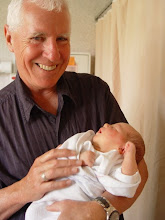Bay News 15 July 2009.
Te Kotahitanga taken to the Canadians
I write this week from the University of British Columbia (UBC) in Vancouver, where I have presented two workshops, together with four other North Island principals, at the invitation of the British Columbia Principals and Vice Principals’ Association. What the six of us have in common is that our schools are involved in the Kotahitanga programme developed by Professor Russell Bishop and Mere Berryman of the University of Waikato to lift the achievement of Maori students. Earlier this year, Russell addressed the British Columbia Rural Principals’ Association about the programme, and organisers of this conference were present. They felt that this programme could contribute to lifting the achievement of the indigenous students in BC, and decided to invite a group of New Zealand principals to come over and talk to their principals about their experience.
New Zealand has been very good at exporting its educational programmes to other countries, and often these have gained greater recognition outside of our country than at home. Marie Clay developed an excellent reading programme that has assisted thousands of young American students to learn to read, yet hers was not a household name in New Zealand. Currently Professor John Hattie’s assessment programme for numeracy and literacy is receiving considerable attention in the United States.
It is pleasing that Te Kotahitanga is being recognised as having the potential to lift the performance of indigenous students in Canada, as it is proving to be very successful in the schools which have implemented it in New Zealand. Mount Maunganui College and the other schools represented in Vancouver are five of the original twelve schools involved in the programme. Last year twenty-one more schools were added to the programme, and this year the government announced that fifteen further schools are to be funded for inclusion. There is a political will to see the programme continue, and one hopes we will see a continued growth in schools being added to Te Kotahitangata, and that this will assist in finally closing the gap in achievement between Maori and Pakeha New Zealanders.
For all of the New Zealand principals attending this conference, it has been a great opportunity to spend the week with Canadian educators. The issues that we are dealing with in New Zealand have many similarities to the experiences of the Canadian schools - issues around student engagement, preparing students for an increasingly changing world, changing demographics, technology, culturally diverse communities and demands on teachers to adjust teaching strategies in order to better meet all of these diverse needs. By the end of the week we will be richer in our experiences and understanding from having had this wonderful opportunity to share thoughts, ideas, teaching practices and programmes with close on three hundred principals from a wide range of schools across the large province of British Columbia.
Subscribe to:
Post Comments (Atom)



No comments:
Post a Comment